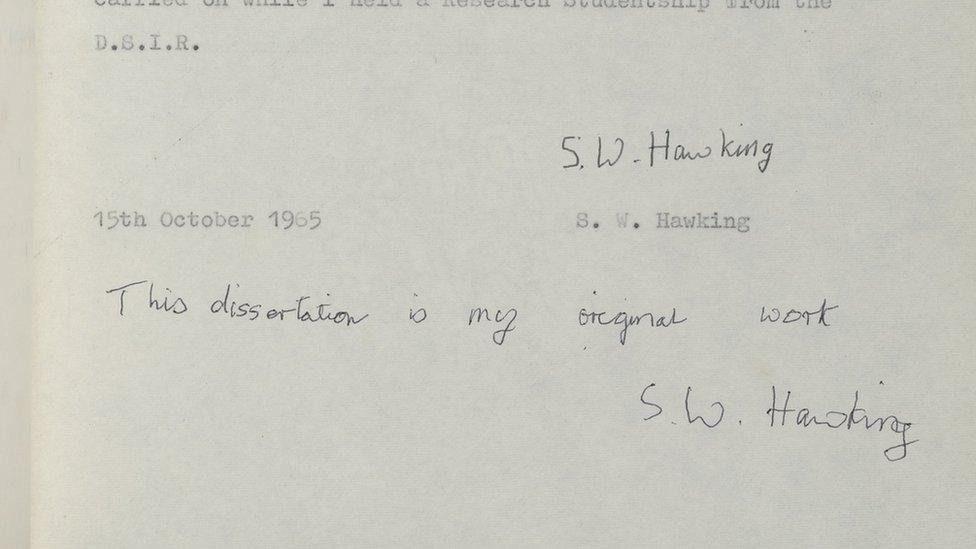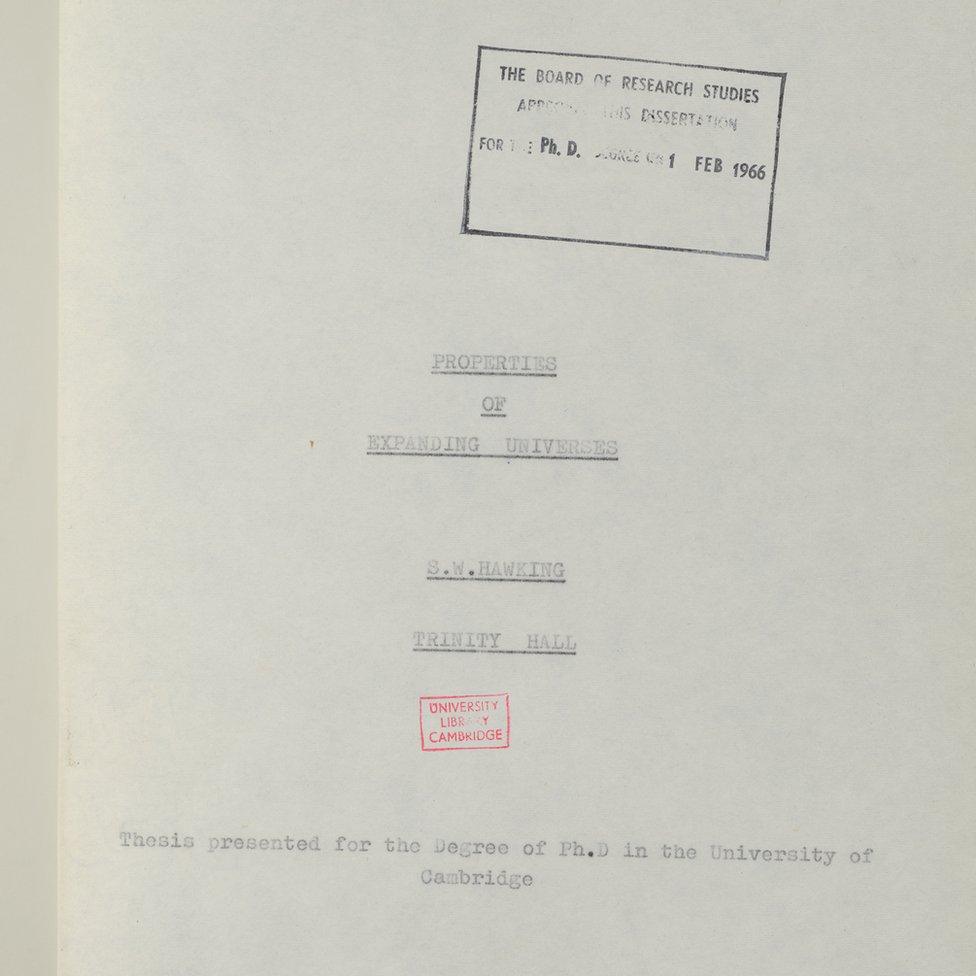Stephen Hawking's Cambridge PhD sees surge in online audience
- Published

Stephen Hawking's handwriting can be seen on the document
Stephen Hawking's PhD thesis has been viewed 250,000 times online since news of his death broke on Wednesday, the University of Cambridge has revealed.
The 1966 work, "Properties of expanding universes", was first uploaded by the university on 23 October and its popularity crashed the website.
Since then, up to two million people have downloaded the document, with many more reading online, a spokesman said.
He added that its popularity proved Prof Hawking's "enduring legacy".
Prof Hawking wrote the 134-page dissertation as a 24-year-old postgraduate student while studying at Trinity Hall, Cambridge.
It is signed and dated 15 October 1965 - three years after he began his lifelong association with the university.

Professor Hawking died on Wednesday at the age of 76
The renowned theoretical physicist would later go on to write A Brief History of Time, one of the most influential scientific works ever.
The typed thesis, which includes Prof Hawking's handwriting, attracted more than two million global views on the first day of its release, crashing the publications section of the university's website.
Dr Arthur Smith, deputy head of scholarly communication at Cambridge University Library, said the document retained a universal appeal.
"It's evidence of the enduring legacy of Professor Hawking that people are still interested in learning about his ideas and theories.
"His work questions preconceptions of where we are in the world and the universe - questions a lot of people ask themselves."

The opening page of Stephen Hawking's PhD, when he was a 24-year-old studying at Trinity Hall
At the time of its public release, Prof Hawking said by making it available he hoped to "inspire people".
"Anyone, anywhere in the world should have free, unhindered access to not just my research, but to the research of every great and enquiring mind across the spectrum of human understanding," he said.
- Published14 March 2018

- Published14 March 2018

- Published14 March 2018

- Published28 October 2017

- Published23 October 2017
